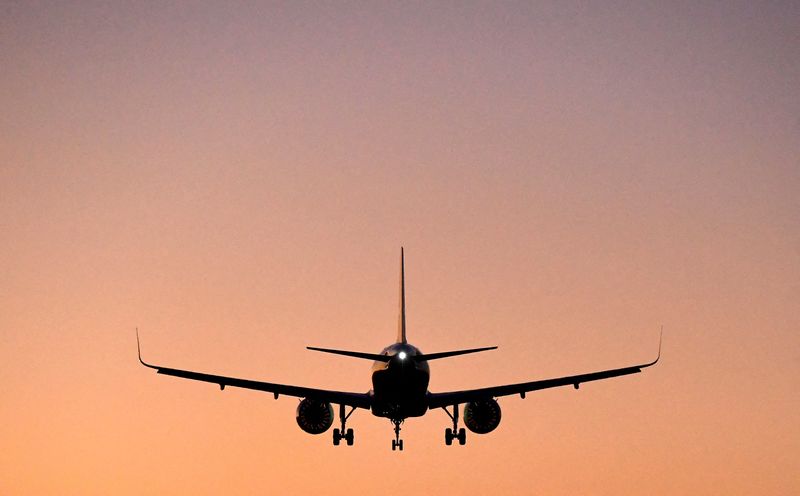By Joanna Plucinska
(Reuters) -Most of the world’s airlines are not doing enough to switch to sustainable aviation fuel, according to a study by Brussels-based advocacy group Transport and Environment, which also found oil producers were investing too little in the transition.
The aviation industry is calling for more production of the fuel, which can be made from materials such as wood chips and used cooking oil.
“Unfortunately, airlines are not currently on a path to meaningful emissions reductions because they are not purchasing enough sustainable aviation fuel,” said Francesco Catte, Transport and Environment Policy Manager.
In its current form, SAF represents approximately 1% of global jet fuel consumption, which must increase before airlines can meet carbon emissions reduction targets. The fuel can be two to five times more expensive than regular jet fuel.
A lack of investment by major oil players, who have the capital to build SAF processing facilities, is hampering market growth, the study said.
In the rankings, Transport and Environment named Air France-KLM, United Airlines and Norwegian as some of the airlines that have taken tangible steps to purchase sustainable aviation fuel, especially its synthetic, cleaner version.
But 87% fail to make meaningful efforts, the rankings show, and even those who do try could miss their own targets without more investment.
Airlines such as Italy’s ITA Airways, the successor to bankrupt Alitalia, and Portugal’s TAP have done very little to secure SAF in the coming years, the rankings show.

A TAP spokesperson said the airline was the first to fly SAF in Portugal in July 2022, “and is committed to flying 10% SAF by 2030”.
“While we would have liked to increase our investment in SAF, low availability… and high costs… have limited our ability to do so, also given our ramp-up condition,” an ITA spokesperson said.


